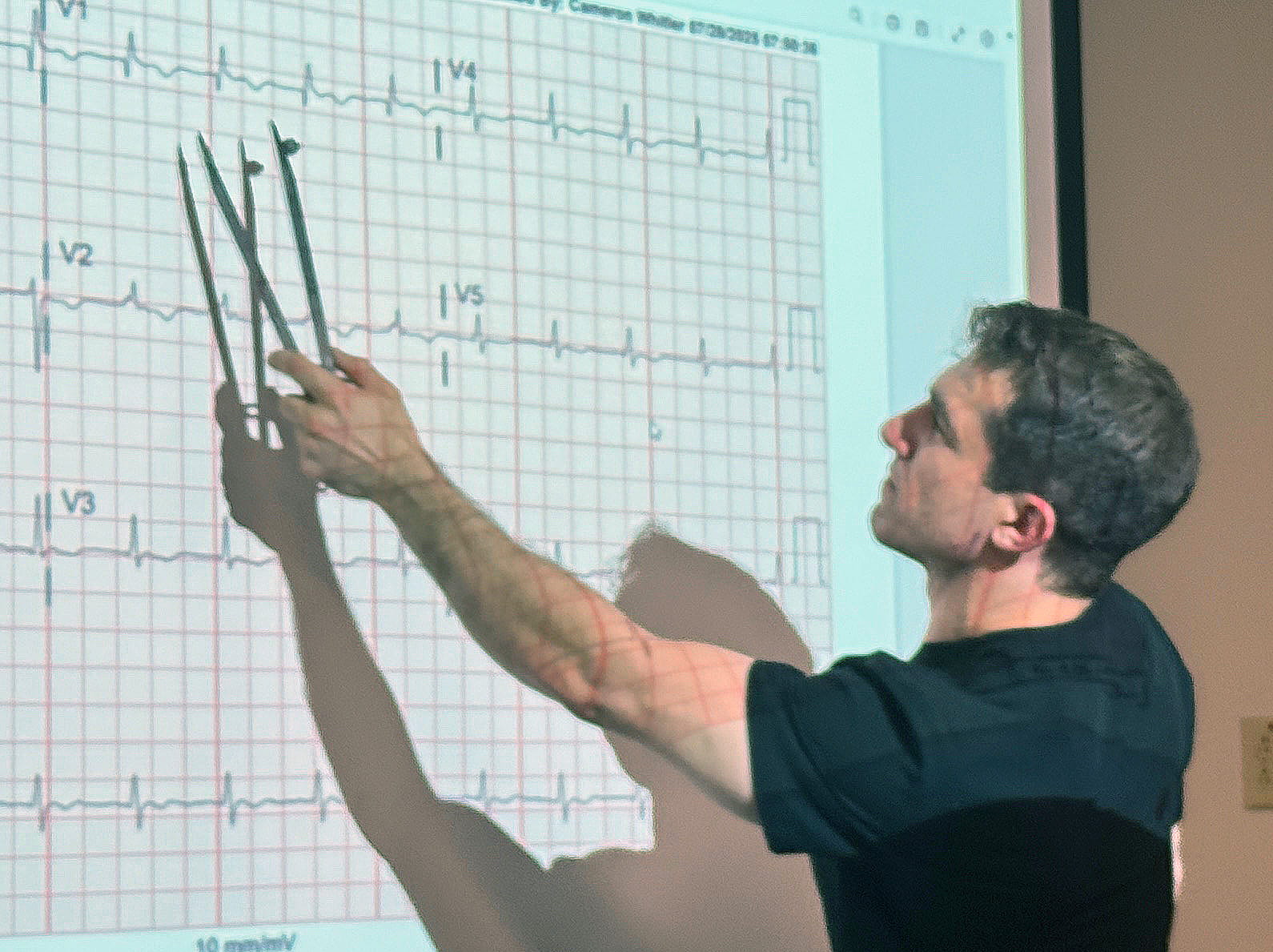Curriculum
Introduction
Our curriculum is fully designed to enable our residents to develop the knowledge, skills, and attitudes of a competent, board-certified internal medicine physician and prepare them for one of the many career pathways that a career in internal medicine affords. Below you will find information on several of the key activities that our residents are involved in.
Rotations and Schedule
- Our program operates a traditional 4-week rotation schedule, with weekly full-day continuity clinics integrated into most rotations.
- We prize our ambulatory medicine experience, and hope you are able to enjoy the same joy for internal medicine primary care that we have. Our full service Resident-Faculty Practice houses both our Continuity and Ambulatory Clinics, as well as our Peri-Operative Assessment Clinic, Geriatric Clinic, and Post-Discharge Clinic. Residents participate in all of these parts of the practice through the course of the program and learn the different skills associated with each.
- Ascension St. Vincent in Evansville operates over two hours from the nearest tertiary referral centers, and as such, on Inpatient Medicine rotations residents learn how to manage a diverse variety of patients and conditions. Our wards teams are designed to allow residents to build graduated autonomy and independence in their practice, with the appropriate amount of support and supervision that a learner needs at that time.
View example block rotation schedules by clicking here
View an example schedule for a typical day on an inpatient rotation by clicking here
View an example schedule for a typical day on an outpatient rotation by clicking here
Educational Sessions
- Our Core Curriculum is delivered through the Noon Conference didactics series, with the goal of developing residents’ knowledge and reasoning as they become skilled internists. Sessions are dedicated to covering content from the ABIM Exam blueprint, and are built around case-based discussions.
- We have both an inpatient and outpatient morning report. Morning Report is a resident led group discussion of clinical problems stemming from recent cases.

Scholarship
- Scholarship is key to the success of our residents and the program. We provide an environment that enables residents to develop research and process improvement skills, develop scholarly projects.
- We run monthly Scholarship Skills Workshops, half day training sessions each focusing on different types of research, based around resident’s interests, and integrated into ambulatory and subspecialty rotations.
- Faculty are skilled in providing support for a wide-variety of project types including case-vignettes, cohort studies, education innovation and qualitative projects.
- All residents participate in a case-based evidence-based medicine presentation and present a morbidity and mortality case each year. Residents
Teaching and Leadership
- Developing education and leadership skills is central to our mission of training physicians to be able to function independently in resource poor environments.
- We incorporate supervision and leadership training into interactive workshop days for each class towards the end of the academic year
- Residents also have opportunities to participate in various program and institutional committees as representatives.
Simulation
- Our acute care simulation program is integrated into our Inpatient Medicine rotations with the focus on developing patient management skills and team leadership skills to be able to competently manage rapid response calls and cardiac arrests.
- We additionally offer procedural simulations, initially as part of intern orientation, but available throughout the year for when residents are performing procedures on patients as an opportunity for additional practice.
Point-of-Care Ultrasound
- As Point-of-Care Ultrasound (POCUS) becomes a key tool in diagnosis and management of our patients, we want to make sure our residents are skilled and competent at using this resource.
- Our residents have access to portable hand-held Butterfly POCUS transducers with iPads on outpatient and inpatient rotations.
- Structured hands-on training days are built into intern orientation and during the intern year with modules on lung, cardiac, abdominal, and vascular systems, with a focus on how findings should be integrated into the wider assessments of our patients.
